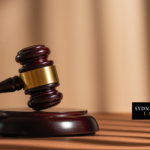How Can I Make a Statutory Declaration in New South Wales?

A statutory declaration is a legal document containing a written statement that is sworn, or affirmed and declared, before an authorised person such as a Justice of the Peace, legal practitioner or notary public and backed by the force of law.
Why might I need a statutory declaration?
Statutory declarations may be necessary to put forth or verify information in a range of contexts, including for legal, financial, employment, education and health matters.
In a criminal law context, a statutory declaration may be required to prove that a particular person was driving a vehicle on a particular date, or to establish any other factual matter that does not form part of court proceedings; which is where affidavits are used.
What is contained in a statutory declaration?
A New South Wales statutory declaration is made under the Oaths Act 1900.
A declaration should include you full name, address and occupation and then a list of facts that you declare to be true. Documents can be attached to the declaration as annexures.
The Act provides two formats in which statutory declaration can be made.
Under Schedule 8 of the Act, the appropriate declaration is:
I, [name here], do solemnly and sincerely declare that, and I make this solemn declaration conscientiously believing the same to be true, and by virtue of the provisions of the Oaths Act 1900 .
Under Schedule 9 of the Act, the appropriate declaration is:
I, [name here], of [address here], do hereby solemnly declare and affirm that [the facts to be stated according to the declarant’s knowledge, belief, or information, severally [#93]. And I make this solemn declaration, as to the matter (or matters) aforesaid, according to the law in this behalf made–and subject to the punishment by law provided for any wilfully false statement in any such declaration.
Who do I need to witness a statutory declaration?
To make a statutory declaration in NSW, you must sign the declaration in the presence of an authorised witness.
An approved witness must either:
- hold one of the approved Australian licensed or registered occupations
- be enrolled as an Australian legal practitioner on the roll of either the:
-
- supreme court of a state, or
- High Court of Australia.
(An enrolled legal practitioner does not need a practicing certificate to witness a Commonwealth statutory declaration).
- hold one of the approved Australian positions:
An approved Australian position includes:
- Accountant who is either a:
- fellow of the National Tax Accountants’ Association, or
- member of any of the following:
- Chartered Accountants Australia and New Zealand
- Association of Taxation and Management Accountants
- CPA Australia
- The Institute of Public Accountants.
- Agent of the Australian Postal Corporation (Australia Post)
- APS employee engaged on an ongoing basis of more than 5 years
- Australian Consular Officer or Australian Diplomatic Officer
- Bailiff
- Bank officer with 5 or more years of continuous service
- Building society officer with 5 or more years of continuous service
- Chief executive officer of a Commonwealth court
- Clerk of a court
- Commissioner for Affidavits
- Commissioner for Declarations
- Credit union officer with 5 or more years of continuous service
- Permanent employee of a Commonwealth authority with 5 or more years of continuous service
- Employee of the Australian Trade and Investment Commission
- Employee of the Commonwealth who is at a place outside Australia and authorised under paragraph 3 (c) of the Consular Fees Act 1955;
- Engineer who is either:
- member of Engineers Australia, or
- a Registered Professional Engineer of Professionals Australia, or
- registered as an engineer under a law of the Commonwealth.
- Finance company officer with 5 or more years of service
- Holder of a statutory office
- Judge
- Justice of the Peace
- Magistrate
- Marriage celebrant
- Master of a court
- Member of the Australian Defence Force who is either:
- an officer, a non-commissioned officer within the meaning of the Defence Force Discipline Act 1982, or a warrant officer.
- Member of the Australasian Institute of Mining and Metallurgy
- Member of the Governance Institute of Australia Ltd
- Member of either:
- the Parliament of the Commonwealth
- the Parliament of a state
- a territory legislature
- a local government authority
- Minister of religion registered under Subdivision A of Division 1 of Part IV of the Marriage Act 1961
- Notary public
- Police officer
- Registrar, or Deputy Registrar, of a court
- Senior executive employee of a Commonwealth authority
- Senior executive employee of a state or territory
- SES [senior executive service] employee of the Commonwealth Sheriff
- Sheriff’s officer
- Teacher employed full-time or part-time at a school or tertiary education institution
They must hold the relevant position or registration at the time of the declaration.
If the authorised witness has not known you for at least 12 months, they will need to confirm your identity with an approved identification document.
Examples of an approved identification documents include a current and valid:
- driver licence or permit
- NSW photo card
- Australian proof of age card, with your photo
- Australian passport, either current or expired less than two years ago
- passport or similar document with your photo and signature, issued by a country other than Australia or by the United Nations (with an English language interpretation if not in English).
Can the witness and the declarant be connected?
The witness cannot be the same person as the declarant – you cannot witness your own Commonwealth statutory declaration.
However, the Statutory Declarations Act 1959 does not prevent a witness from being a friend or family member of the declarant, or otherwise connected – so long as that person is an approved witness.
How can I access a statutory declaration form?
Statutory declaration forms can be accessed via the Service NSW website.
What offences apply to breaking the rules relating to statutory declarations?
Under section 21A of the Oaths Act 1900, it is an offence for a person to take and receive a statutory declarations without being an authorised witness.
This offence carries a maximum penalty of 12 months imprisonment or 2 penalty units.
One New South Wales penalty unit is currently $110.
Further offences apply to a person making a false declaration under the Oaths Act
Section 25 of the Act makes it an offence for a person to wilfully and corruptly makes and subscribes any such declaration, knowing the same to be untrue in any material particular.
This offence carries a maximum penalty of 5 years imprisonment.
Section 25A of the Act prescribes a maximum penalty of 7 years in prison where such a false declaration is made for material benefit.
Legal defences
In addition to having to prove each component of an Oaths Act offence, including knowledge requirements such as ‘wilfulness’, beyond a reasonable doubt, the prosecution must also disprove to the same high standard any legal defences that may be raised by the evidence.
If the prosecution is unable to do this, a defendant must be found not guilty.
One of the available defences to Oaths Act offences the legal defence of duress, which is where a person person engages in conduct due to a threat of serious, imminent, ongoing and unavoidable harm to him or herself, or to someone close to them, and his or her actions were justified in the circumstances.
Going to court for a criminal matter?
If you are going to court over a criminal case, call Sydney Criminal Lawyers anytime on 9261 8881 to arrange a free first conference during which one of our experienced defence lawyers will advise you of your options and the best way forward, and fight for the optimal outcome.






